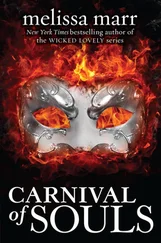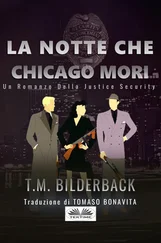Nodding happily, he sat beside her, sipped his drink, lit a cigarette. He was a well put together, tautly built fellow, maybe fifty, clouds of some overpowering cologne floating off his skin. He wore a well-fitted light blue suit, a Cuban flag pin on his lapel, with a crisp open-collared shirt, a rush of silvered hair flowing upwards from his chest and just a distinguishing touch of gray at his temples; his eyes were remarkably penetrating. And yes, he was handsome.
“Well, believe it or not, I caught a couple of your shows, back when; in one of them you were dressed up like an Egyptian-like Cleopatra-is that right?”
“Yes, that revue was popular for a while.”
He slapped his knee. “Lordy, I knew it. God, I remember thinking, Now that is one hell of a good-looking woman! And if I didn’t approach you, well, it’s because I didn’t think I had a chance in heaven.” He did not mince words. “Tell me, are you married?”
“No, soy viuda”-“I’m a widow,” María said in such a downcast way that Teresita, sitting beside her, half rolled her eyes up into her head. “My husband died last year-a good man, you understand. Un santo,” she told him, looking off sadly.
“Well, here’s what I think,” he said, shifting his chair towards her. “Life is too short to throw it away by feeling bad about things. What do you say about you and me going out somewhere one night-anywhere you want!” He touched his heart. “It would honor me.” Then, as a waiter brought him another drink, he made a big show of pulling out a thick wad of bills, the way Ignacio used to back in Havana, peeling off a ten, and stuffing it into the waiter’s frock pocket with a wink.
“My name’s Rafael Murillo,” he told her and, like a gallant, withdrew from his jacket pocket a card: “A sus órdenes.”
When María extended her hand, he turned it palm up, like a reader, examining her lines closely; then he went into all this ecstatic miércoles about her youthful appearance and beauty, as if he had just bumped into her on a street in Havana twenty years before. Teresita just listened, knowing that for her mother’s age-past forty, well, forty-three by then-everything he said was true. After all, beautiful María could have passed for a fine-looking woman somewhere in her luscious mid thirties, for she had kept her figure and had the complexion of a lady who, aside from her slowly aging mulatta genes, still rubbed palm oil and honey on her face each morning. How good did she look? When mother and daughter went for strolls in South Beach, or along the consoling sidewalks and shops of Little Havana, it was beautiful María, in tight pink or canary yellow slacks, with an unforgettable walk, who drew all the stares.
Once their introductions had been made, she and Rafael danced a few cha-cha-chas and mambos, but mainly they drank, chain-smoked, and shared stories about Cuba, as it used to be. Eventually, he got around to trying out his charms on Teresita. “Looking at you I can see that the apple doesn’t fall far from the tree,” he told her exuberantly at one point, and while Teresita, a sweet girl at heart, smiled at the compliment, she hardly believed him, thinking herself, as she always would, only ordinary looking at best, even if that was far from the truth. (Years later, in her doctorly guise, it would always surprise Teresa when one of the hospital orderlies whistled good-naturedly at her figure.) Later, when they had stepped out from the Holiday Inn by the harbor, into one of those languid, perfume-filled Miami nights, the sort reminiscent of a delicious Havana evening, her mother’s new acquaintance offered to drive them home in his fancy 1972 DeVille. After he’d handed three dollars to the valet, with the windows rolled down, his elbow out the window as he steered with a single hand, María beside him, Teresita in the back, they drove through the velvet night.
Along the way, he spoke about the two restaurants he owned: “One is called El Malecón, up in Coral Gables, have you heard of it?”
“Of course,” María answered. “That’s yours?”
“Yes, indeed, my brother and me opened it about six months after we came to Miami, in ’64,” he began. “It started out as a hole-in-the-wall, we did hardly any business at all at first, but, you know, with things improving in the city, business picked up. We advertise in all the hotels with brochures, and, thanks to taking care of the concierges, we’ve done pretty well. Good enough to open a second place along Key Biscayne Boulevard -that’s my favorite. It’s the Siboney, after Lecuona’s song, and even if it’s not as fancy as the other, which is more upscale, para la gente con más dinero, sabes, I love it the most because we’ve done it up like the old seaside friterías outside Havana, and I just like its views of the ocean.”
“So you’ve succeeded,” María said. “I’m happy for you.”
“Yes, thank our lucky stars,” he said, tapping the dashboard top. “But, even as good as we’re doing, I still look forward to getting back to Havana one day, you know, after that shit is overthrown.” He shook his head, his suave and happy-go-lucky manner dissipating in that moment. “It’s something I don’t like to think about too much-you know, I put a lot of faith and hope in that man, and I didn’t want to leave Cuba, but-” And he went on about what happened to him and his family in the same way that so many of the exiles did in those days, things turned upside down, the stomach-churning Russians coming in, the businesses nationalized, the food shortages, the government’s snoops and spies, the assaults on liberty that he and his family just couldn’t take anymore.
“Surely, you understand what I’m saying, huh?”
“¿Cómo no?” María answered. “Even my daughter, Teresita-even she knows that we Cubans didn’t want to leave. But we had to, right, hija?”
By then, he’d turned up Twenty-sixth. “Our house is the fourth one on the right, over there under the big tree,” she told him. And when he had pulled up, he asked them to wait, and, like a gentleman, this Rafael Murillo got out and walked over to the passenger side of the car, opening the door for each of them.
“Your carriage has arrived, mi condesa,” he said to Teresita, bowing. Then to María, “I will see you soon, next week. I’ll bring you both to the restaurant-we have a little band that performs there on Friday nights-okay?”
And with that Rafael Murillo, winking at them both in a pleasant way, got into his car and drove off into the balminess of the evening.
A FEW THINGS ABOUT THIS RAFAEL: HE HAD A PLACE UP IN FORT Lauderdale, a condominium, to which he would sometimes take María for a weekend afternoon. He was separated from his second wife, whom María, finding him so handsome and genteel, thought must surely have something wrong in la cabeza, for he would sadly say that he missed his kids on a daily basis, and that it wasn’t his idea at all. He belonged to an anti-Castro organization which met in a downtown hall twice monthly. He wore a gold bracelet on his right wrist, inscribed with the words “ Liberty or death. Viva Cuba Libre!” and was furious about the American cowards of the Kennedy administration who had betrayed the Cuban cause during the failed Bay of Pigs invasion, even if it had taken place over a decade before. He regularly telephoned María at night from his restaurants, calls that she took only in her bedroom. He was generous, and never came to visit their house without some gifts for María and Teresita. (“Tell me what you need, and it will be yours,” he said.) Finding it unusual that María did not own a car and depended on slow public transportation or rides with friends to get where she needed to go, he offered to buy her a car so that he wouldn’t always have to pick her up for their citas. Learning that she didn’t know how to drive, he promised to pay for lessons, but she refused, having a phobia about cars, not only because she had grown up among horses and donkeys, and had always regarded automobiles with wonderment, as if the driving of such machines was intended only for men, but because they made her think about Nestor Castillo’s death.
Читать дальше












